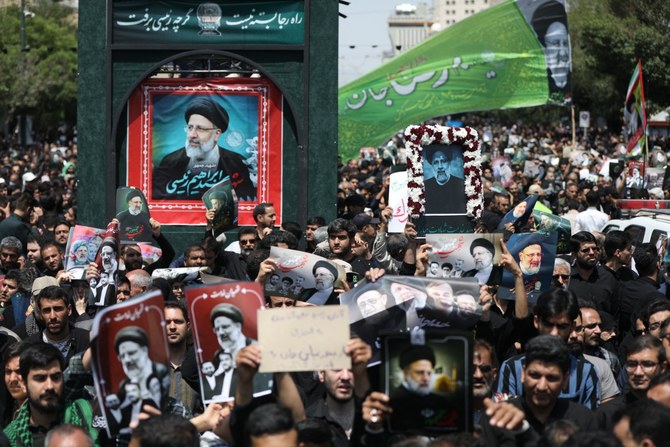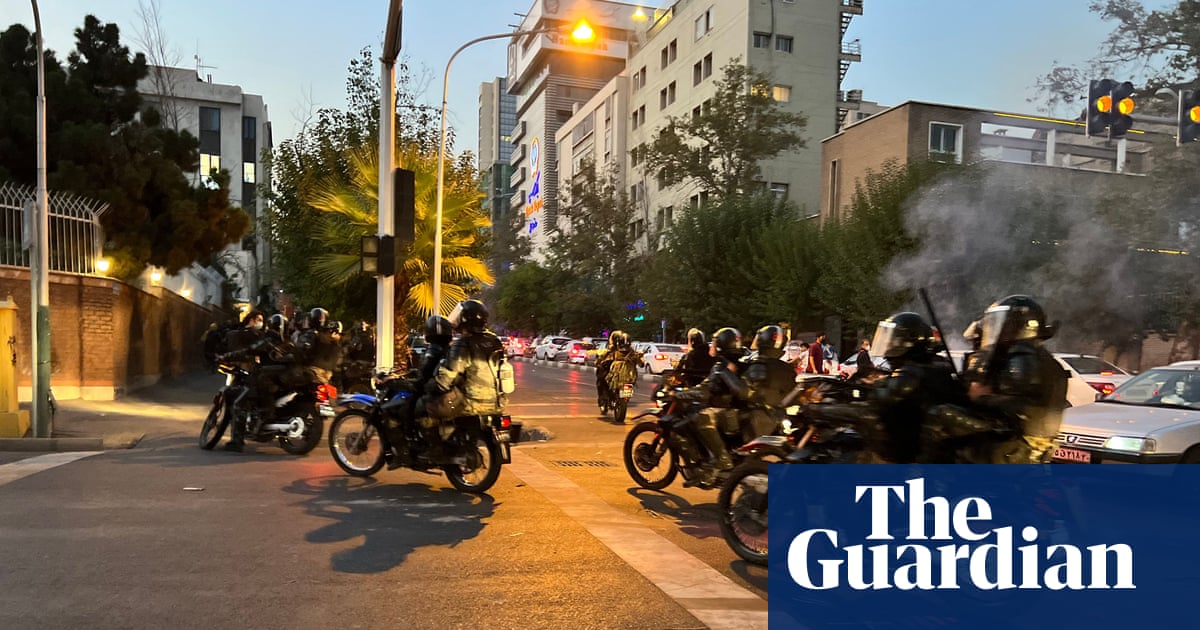
Khamenei’s ally Raisi likely to succeed succeed the pragmatist incumbent Hassan Rouhani
JEDDAH: Iranians vote on Friday in a race that is seen by the regime’s critics as not democratic, fair, or free by any means.
The election, tightly managed by the nation’s top authorities, is likely to hand the presidency to a judge sanctioned by Washington for alleged involvement in executions of political prisoners.
Hard-liner Ebrahim Raisi, an ally and protege of Iran’s Supreme Leader Ayatollah Ali Khamenei, is the favorite to succeed the pragmatist incumbent Hassan Rouhani.
“The regime will attempt to project that it enjoys legitimacy during this election. Government employees will be instructed to go to the ballots in order to show the popularity of the regime, while the authorities may manipulate the statistics in order to show a high voter turnout,” Dr. Majid Rafizadeh, a Harvard-educated Iranian-American political scientist, writes in Opinion.
Khamenei on Wednesday urged Iranians to turn out and vote, but a record number of people are expected to boycott the polls due to anger over worsening economic hardship and frustration with hard-line rule.
Another potential deterrent for voters is a hard-line vetting body’s disqualification of hundreds of would-be candidates, including many advocating more freedoms.
For an overwhelmingly young population chafing at political restrictions, the lack of choice at the ballot box means a vote serves little purpose, analysts of Iranian politics say.
Soraya, a student at Tehran University, told Arab News: “The government is telling people to vote. But I see voting as an insult. We are not going to vote in order to show the world that we Iranians are frustrated with this clerical establishment.
“We are not with a government that shoots down a passenger plane (Ukraine International Airlines Flight 752, which was downed by the IRGC in January 2020), lies repeatedly, and kills and tortures its own citizens.
“We are not with a government that steals the nation’s natural resources and spends it on its militias. The old game of moderate or hard-liner is over. They are all the same.”
Within Iran’s mix of clerical rulers and elected officials, Khamenei has the final say on all state matters, including nuclear and foreign policies. But the elected president will be in charge of tackling an economy hammered by US sanctions.
Over 50 percent of Iran’s 85 million population has been pushed under the poverty line since 2018 when then US President Donald Trump ditched a 2015 nuclear deal and reimposed nuclear-related sanctions that have squeezed Tehran’s oil income.
Aware of its vulnerability to anger over the economy, the leadership fears a revival of street protests that have erupted since 2017, in which protesters called for “regime change.”












